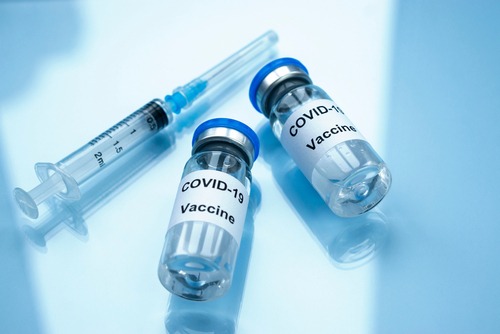
Questions were spurred last week with news from Pfizer and BioNTech that progress was being made on a COVID-19 vaccine booster the companies indicated would likely be needed in the future — a stance promptly contradicted by the U.S. Food and Drug Administration (FDA) and the Centers for Disease Control and Prevention (CDC).
Presently, Pfizer and BioNTech have a joint, two-dose vaccine that has been authorized for the American public under an emergency use authorization for anyone 12 years of age and older. In a statement last week, however, the companies noted that a new mRNA vaccine booster is under development to target new variants of concern, such as the rapidly spreading Delta variant.
Based on real-world data from a small trial in Israel, the companies declared that a third dose might be needed within six to 12 months following full (double dose) vaccination. This was due to declining efficacy against symptomatic cases of COVID-19 over time and the continuing emergence of variants. They, therefore, argued that a third dose might be beneficial to maintain the highest levels of protection.
“While Pfizer and BioNTech believe a third dose of BNT162b2 has the potential to preserve the highest levels of protective efficacy against all currently known variants including Delta, the companies are remaining vigilant and are developing an updated version of the Pfizer-BioNTech COVID-19 vaccine that targets the full spike protein of the Delta variant,” Pfizer-BioNTech said in a press release.
The same day that press release went live, the CDC and FDA issued a separate joint statement opposing the need for a booster shot.
“Americans who have been fully vaccinated do not need a booster shot at this time,” the federal agencies said in their statement. “FDA, CDC, and NIH are engaged in a science-based, rigorous process to consider whether or when a booster might be necessary. This process takes into account laboratory data, clinical trial data, and cohort data – which can include data from specific pharmaceutical companies but does not rely on those data exclusively. We continue to review any new data as it becomes available and will keep the public informed. We are prepared for booster doses if and when the science demonstrates that they are needed.”
At this time, the agencies added that virtually all COVID-19 hospitalizations and deaths in the U.S. occur among those who have not yet been vaccinated, even in the case of variant strains. They took the opportunity to encourage the unvaccinated to remedy that situation as soon as possible.
The mixed messaging comes when Pfizer has indicated it plans to submit data to the FDA to push for authorization of a booster dose.
Since COVID-19 first broke onto the scene, the U.S. has seen more than 607,000 of the more than 4 million resulting deaths reported worldwide. Yesterday, the Johns Hopkins University of Medicine reported another more than 6,000 cases emerged in the United States. However, case counts have continued to trend downward since earlier this year, as vaccination became more widespread.




